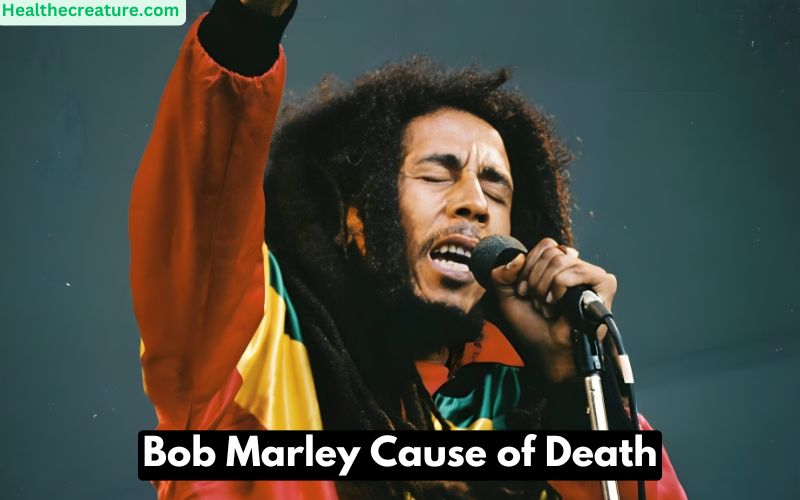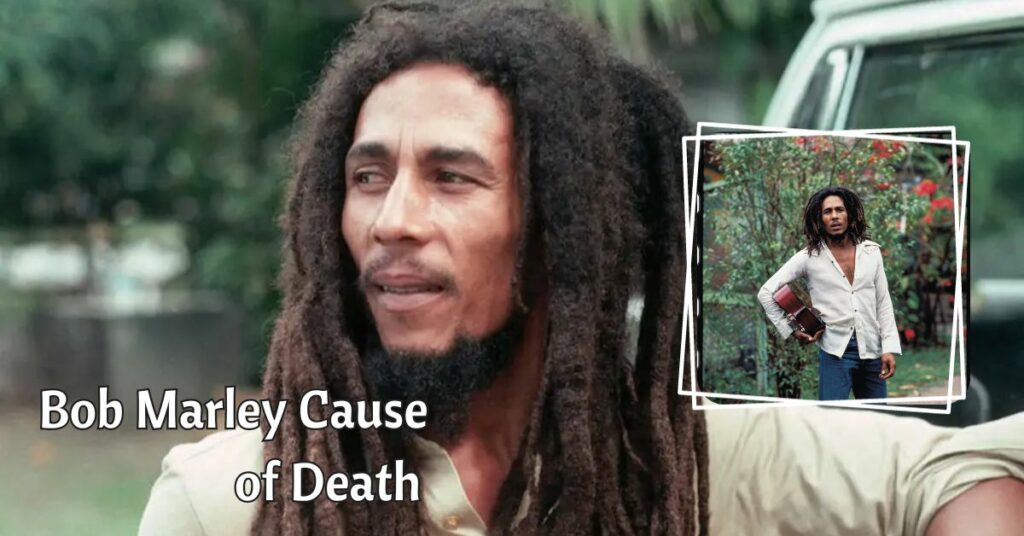When we talk about legends, Bob Marley is more than just a name—he’s a movement, a symbol of peace, love, and resistance. But behind the iconic dreadlocks and the melodies that echo through generations lies a tragic tale of how this global icon met his untimely end. Today, we dive deep into the life, struggles, and ultimately, the cause of Bob Marley’s death.
Bob Marley wasn’t just a musician; he was a cultural phenomenon. His music transcended borders, languages, and even time. Yet, despite his larger-than-life persona, his passing remains shrouded in mystery for many. In this article, we’ll uncover the truth about what really led to his death and explore the lessons we can learn from his journey.
From his early days in Jamaica to his rise as a reggae superstar, Bob Marley’s life was nothing short of inspiring. But like every great story, there’s always a bittersweet ending. Let’s take a closer look at the events that unfolded and the factors that contributed to his untimely demise.
Read also:Why Breakups Might Be The Best Thing That Ever Happened To You
Bob Marley's Early Life and Rise to Fame
Before we delve into the cause of his death, it’s important to understand the man behind the music. Born on February 6, 1945, in Nine Mile, Jamaica, Bob Marley grew up in a world filled with hardship and resilience. His journey from a small village boy to an international superstar is nothing short of extraordinary.
Growing up in a racially mixed household, Bob faced discrimination early on. His father, Norval Marley, was a white Jamaican of English descent, while his mother, Cedella Booker, was Afro-Jamaican. This duality shaped his worldview and later influenced his music, which often spoke of unity and equality.
Key Milestones in Bob Marley's Career
Bob’s career skyrocketed in the 1970s with hits like "No Woman, No Cry" and "Stir It Up." His music resonated with people across the globe, making him a household name. Here are some key milestones in his career:
- 1963: Formation of The Wailers, a band that would later become synonymous with reggae music.
- 1973: Release of the album "Catch a Fire," which introduced reggae to mainstream audiences.
- 1977: Release of "Exodus," one of the most iconic albums in music history.
These achievements not only cemented his legacy but also set the stage for the challenges he would face later in life.
Biography and Personal Details
Before we dive deeper, let’s take a moment to look at some key facts about Bob Marley. Below is a table summarizing his personal details:
| Full Name | Robert Nesta Marley |
|---|---|
| Date of Birth | February 6, 1945 |
| Place of Birth | Nine Mile, Saint Ann Parish, Jamaica |
| Occupation | Singer, Songwriter, Activist |
| Spouse | Rita Marley |
Now that we’ve covered the basics, let’s get into the heart of the matter.
Read also:And Getaways Your Ultimate Guide To Unforgettable Escapes
Bob Marley Cause of Death: The Medical Perspective
Bob Marley passed away on May 11, 1981, at the age of 36. The official cause of his death was melanoma, a type of skin cancer. But how did this happen to a man who seemed so full of life and energy?
It all started in 1977 when Bob noticed a small wound on his toe that wouldn’t heal. Initially dismissed as a soccer injury, doctors later diagnosed it as acral lentiginous melanoma, a rare form of skin cancer that affects darker-skinned individuals.
Symptoms and Diagnosis
The symptoms of melanoma can be subtle, which is why it often goes undetected. In Bob’s case, the cancer had already spread to other parts of his body by the time it was diagnosed. Here are some common symptoms:
- Unusual moles or skin lesions
- Persistent wounds that don’t heal
- Changes in skin color or texture
Despite undergoing treatment, including surgery and chemotherapy, the cancer had progressed too far. Bob’s condition deteriorated rapidly, leading to his untimely death.
Bob Marley's Struggles with Cancer
Living with cancer is no easy feat, and Bob Marley’s battle was no exception. As a devout Rastafarian, he initially resisted medical intervention, believing in the power of natural remedies and spiritual healing. However, as his health worsened, he eventually sought conventional treatment.
In 1980, Bob traveled to Germany to undergo treatment at the clinic of Dr. Josef Issels, a pioneer in alternative cancer therapies. While the treatment provided some relief, it wasn’t enough to stop the cancer’s progression.
Emotional Impact on Bob and His Family
Dealing with a terminal illness takes a toll not just on the patient but also on their loved ones. Bob’s family, especially his wife Rita, stood by him through thick and thin. In interviews, Rita has spoken about the emotional rollercoaster they experienced during this time.
Despite the challenges, Bob remained hopeful and continued to spread his message of love and peace. His final days were spent surrounded by family and friends, a testament to the love and respect he inspired in those around him.
Lessons from Bob Marley's Passing
Bob Marley’s death serves as a powerful reminder of the importance of early detection and treatment. Melanoma, though rare, is highly treatable if caught early. Here are some key takeaways:
- Regular skin checks can save lives
- Don’t ignore persistent wounds or unusual moles
- Seek medical advice if you notice any changes in your skin
Bob’s story also highlights the importance of balancing traditional and modern medicine. While his faith in natural remedies was commendable, seeking professional help could have made a difference.
Bob Marley's Legacy Lives On
Even though Bob Marley’s life was cut short, his legacy continues to inspire millions around the world. His music remains as relevant today as it was during his lifetime, reminding us of the power of unity and love.
Organizations like the Bob Marley Foundation work tirelessly to promote his message and support causes close to his heart. Through initiatives like education and healthcare programs, they honor his memory and continue his mission.
How You Can Contribute
If you’re inspired by Bob Marley’s story, consider supporting organizations that fight cancer or promote reggae music. Every little bit helps, whether it’s through donations, volunteering, or simply spreading awareness.
Conclusion: Remembering the King of Reggae
In conclusion, Bob Marley’s death was a tragic loss for the world, but his music and message continue to resonate with people everywhere. By understanding the circumstances surrounding his passing, we can learn valuable lessons about health, resilience, and the power of love.
So, the next time you listen to "Three Little Birds" or "Redemption Song," take a moment to reflect on the man behind the music. And don’t forget to share this article with your friends and family—it’s the least we can do to keep Bob’s legacy alive.
Table of Contents
- Bob Marley's Early Life and Rise to Fame
- Biography and Personal Details
- Bob Marley Cause of Death: The Medical Perspective
- Bob Marley's Struggles with Cancer
- Lessons from Bob Marley's Passing
- Bob Marley's Legacy Lives On
- Conclusion: Remembering the King of Reggae
Thanks for reading, and remember: "Don’t worry about a thing, ‘cause every little thing is gonna be alright."


